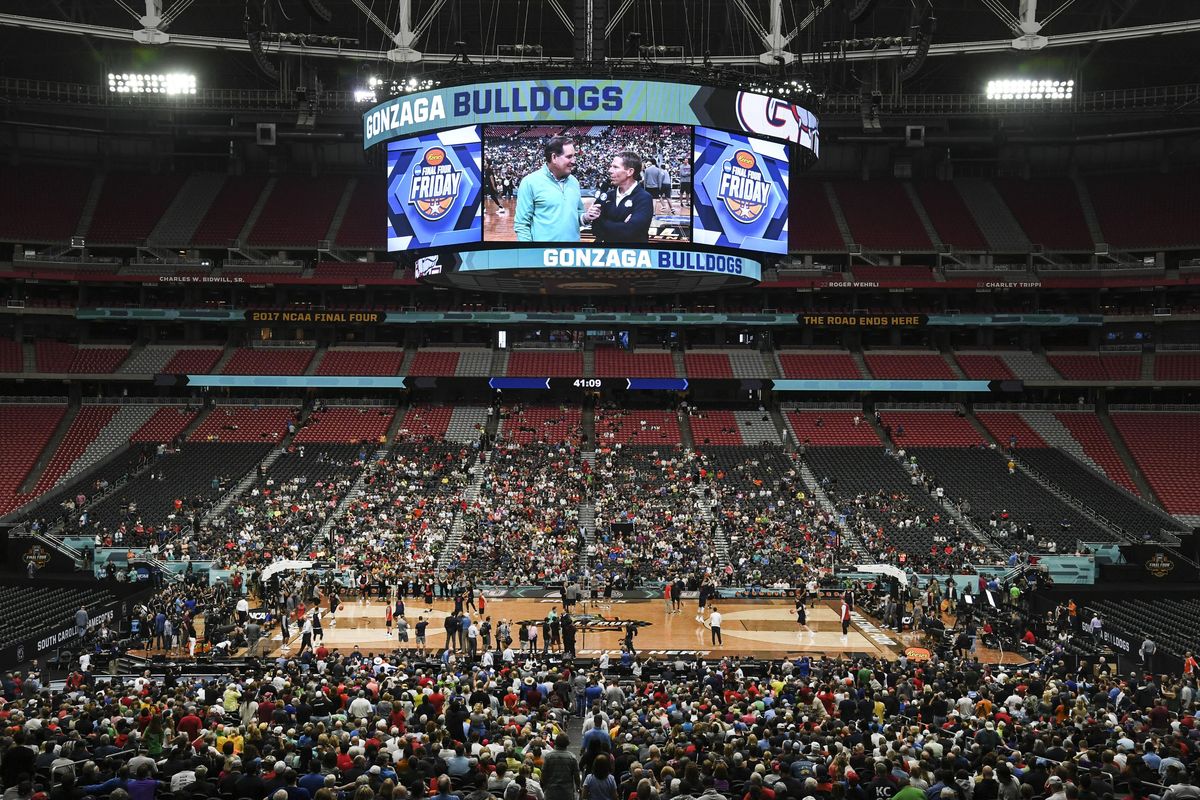John Blanchette: Bulldogs can count on Nigel Williams-Goss, big numbers or not

GLENDALE, Ariz. – One teardrop runner settled into the net, and another a few minutes later. Then a 3-pointer found home – off a kick-out pass from the big fella – and the sigh of relief could be heard everywhere between Silicon Valley and Spokane.
Nigel being Nigel. Again.
Mind you, at that point, Nigel Williams-Goss had still made just 3 of 8 shots in the Bulldogs’ NCAA Elite Eight game and would connect on just 7 of 19 by the end. But there was still a sense that the catalyst of Gonzaga’s transformative basketball season was back in the groove that weeks and months earlier had helped birth the undefeated Zags, the top-ranked Zags.
The dare-to-dream Zags.
And if so, just in time.
Because coming off the most important victory in their history, the Zags have a chance – maybe two – at a bigger one.
And it’s likely they’ll need no player at his best this weekend more than Nigel Williams-Goss.
If this seems like an unfair burden with the Bulldogs poised for their semifinal Saturday date with South Carolina, well, those are the dues in Williams-Goss’ particular club.
Elite players. Alpha dogs.
When the Gonzaga season began, the most remarkable aspect of the Zags was their uncanny balance – seven different leading scorers in the first six games, and a new cumulative leader after each. Five players would score 20 points or more at least once; two more in GU’s eight-man rotation had games of 17 or better.
It’s still what makes solving the Zags like finishing a 1,000-piece picture puzzle of Dalmatians – that and a premier wheelman.
So while the Bulldogs were taking their early, sometimes halting steps in the tournament, the one real red flag was the struggle Williams-Goss was having on the offensive end. He was 12 of 42 those first three games. Turnovers were up; assists were down.
But his confidence?
“Sky high,” Williams-Goss insisted. “As long as we’re winning games, I feel I’m doing something right.”
This is very alpha-doggish, too – and the reason why Gonzaga’s coaching staff deflected those numbers as no great concern.
“If that’s all he brought to the game, maybe you’d worry about it,” assistant Brian Michaelson said. “If he’s a specialist who has to make shots to be successful and he’s not making shots, then it can be hard to play him. But he’s an elite defensive player, a guy who gets you into your offense, who plays with toughness and competitiveness. You’re not going to worry about one phase of his game.”
Still, there was a heaviness to Williams-Goss’ game in the early rounds – even in a 20-point, eight-rebound, four-assist effort against Northwestern – rarely seen in the regular season. Some of that may have been extra attention from defenders – and certainly West Virginia’s press can take its toll on any guard, and he’ll get more from the Gamecocks. Some of it may have been the stakes.
And then there was this:
“The South Dakota State game,” coach Mark Few noted, “was Nigel’s first NCAA Tournament game.”
So the four 3s he made against Xavier were certainly a relief, but no more so than a revived aggression.
“Those kind of guys embrace those things,” Michaelson said. “I think about Kyle Wiltjer and one of the things I loved about him was he wanted the ball – no matter who was on the other side, he believed he was the best player and was going to have the best game. (Dan) Dickau was like that, Blake Stepp. Adam Morrison was as special as there was about wanting that moment. Nigel has that.”
And more. All the Zags have referenced the debt owed to their forebears, but none more often than Williams-Goss – remarkable for a player who arrived at GU in midcareer.
“He has the maturity to understand that he’s had a special individual season and led us further than we’ve ever been,” Michaelson said, “but he also gets that it wasn’t built in one year. It wasn’t built because he’s here. It took 20-whatever, even 30 years – whenever you want to say it started at the base level. He knows that from seeking out the guys who played here and live in Spokane, and the guys who come back through like (Jeremy) Pargo and (Matt) Bouldin.”
So now he knows what he didn’t know – the history and legacy – and what it means: that the Zags need him to be at his best, on this stage.
But maybe he’s known that all along.
“The day I stepped on campus and saw all the pieces we had in place,” Williams-Goss said, “I knew our goal had to be Phoenix and the national championship. If it wasn’t, we were selling ourselves short.”